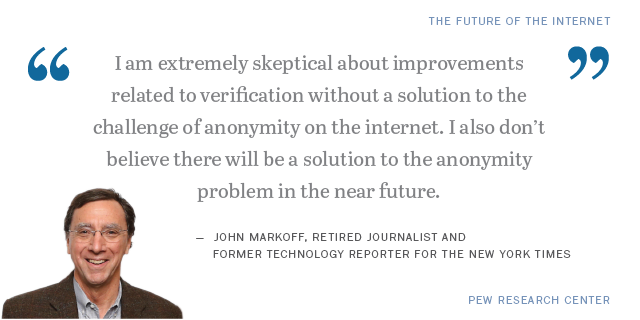What will happen to the online information environment in the coming decade?
In summer 2017, Pew Research Center and Elon University’s Imagining the Internet Center conducted a large canvassing of technologists, scholars, practitioners, strategic thinkers and others, asking them to react to this framing of the issue:
The rise of “fake news” and the proliferation of doctored narratives that are spread by humans and bots online are challenging publishers and platforms. Those trying to stop the spread of false information are working to design technical and human systems that can weed it out and minimize the ways in which bots and other schemes spread lies and misinformation.
The question: In the next 10 years, will trusted methods emerge to block false narratives and allow the most accurate information to prevail in the overall information ecosystem? Or will the quality and veracity of information online deteriorate due to the spread of unreliable, sometimes even dangerous, socially destabilizing ideas?
Respondents were then asked to choose one of the following answer options:
The information environment will improve – In the next 10 years, on balance, the information environment will be IMPROVED by changes that reduce the spread of lies and other misinformation online.
The information environment will NOT improve – In the next 10 years, on balance, the information environment will NOT BE improved by changes designed to reduce the spread of lies and other misinformation online.
Some 1,116 responded to this nonscientific canvassing: 51% chose the option that the information environment will not improve, and 49% said the information environment will improve. Below are some of their responses.












